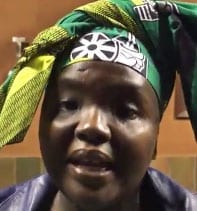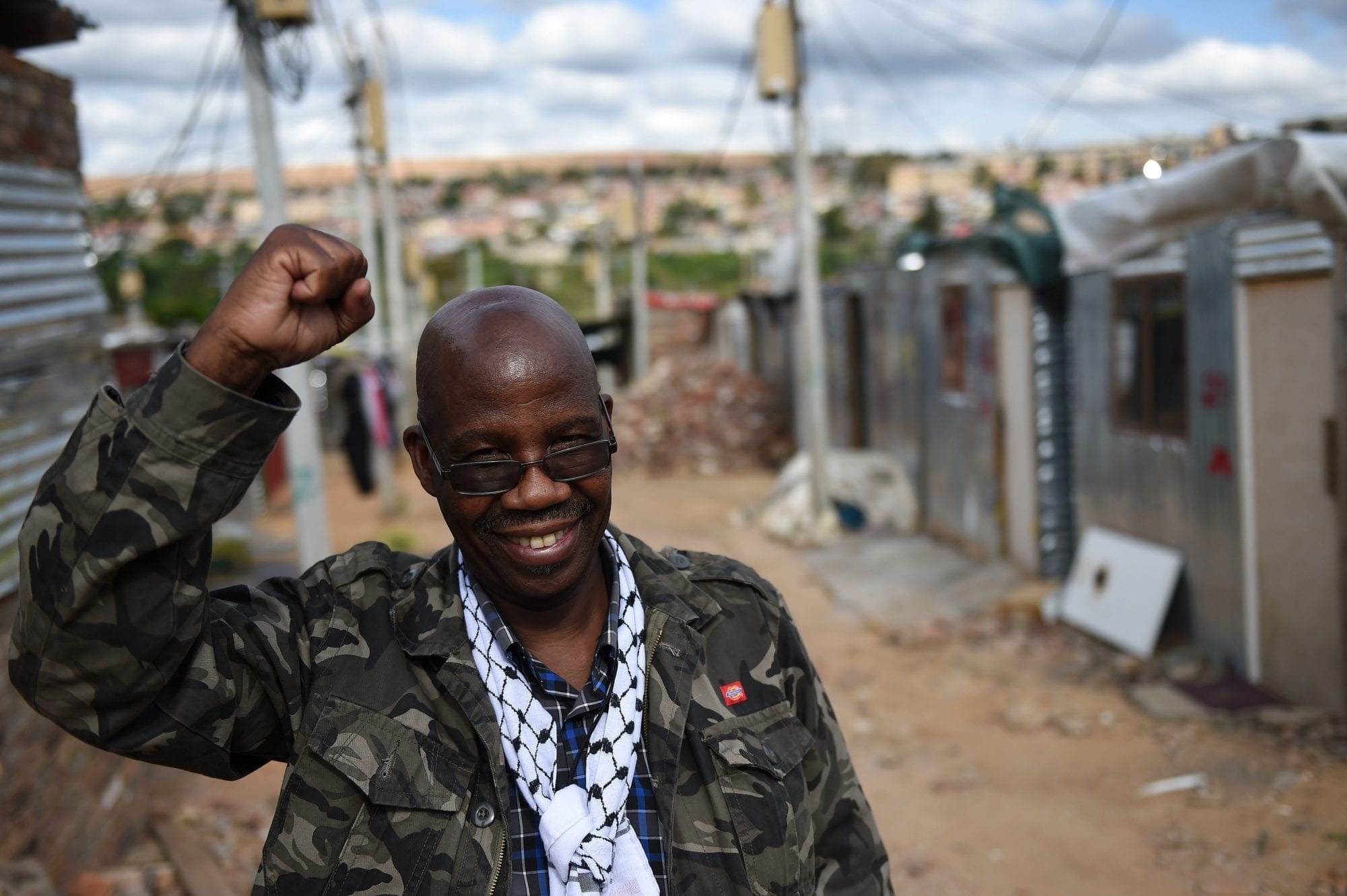
Aug 2, 2018
The Constitutional Court of South Africa determined in a historic ruling late last week that workers placed by labor recruiters must be made permanent after three months at the company where they worked on temporary status, entitling them to the same pay, benefits and job security afforded to full-time employees, but labor organizations expect a protracted fight to enforce the ruling.
Zwelinzima Vavi, general secretary of the South African Federation of Trade Unions’ (SAFTU), described the victory as “unprecedented,” congratulating the National Union of Minworkers of South Africa (NUMSA) for its successful—almost four-year battle—through South Africa’s labor courts and the Constitutional Court.
The ruling puts employers on notice, he said. “Sorry, you are going to have to treat all workers the same” finally giving meaning to the ILO Convention which requires equal pay for work of equal value,” said Vavi in a broadcast interview.
However, the Court stopped short of banning labor recruiting, or broking, outright, for which South Africa’s unions and federations have long advocated. Short of a ban, workers say, trade unions and labor federations expect challenges to ensuring enforcement of the ruling.
Sizwe Pamla, a spokesperson of the Congress of South African Trade Unions (COSATU), said it was unfortunate that the ruling still “justified” labor brokers, whom he said were “trading in workers.”
NUMSA’s general secretary, Irvin Jim warned that workers “still remain vulnerable” under the new ruling because recruiters “will try to do every trick: They will try to replace the worker before three months [end]; they will try to remove him.”
South Africa’s workers have long argued that employers use so-called “temporary” workers to avoid the higher cost of employing permanent workers, an arrangement from which labor brokers profit.
To enforce the ruling, Vavi said, unions and federations must educate workers about their new rights under this ruling.
The Constitutional Court verdict overturns a 2015 judgment that labor recruiters and their clients are dual employers, thus making employers the direct responsible parties for all workers in their workplace after three months. Temporary workers earning $15,500 per year or less are covered by the ruling.
Labor recruitment in South Africa generated more than 2.5 billion U.S. dollars in 2013, employing over 1 million so-called temporary workers, or 7.5 percent of total employment.
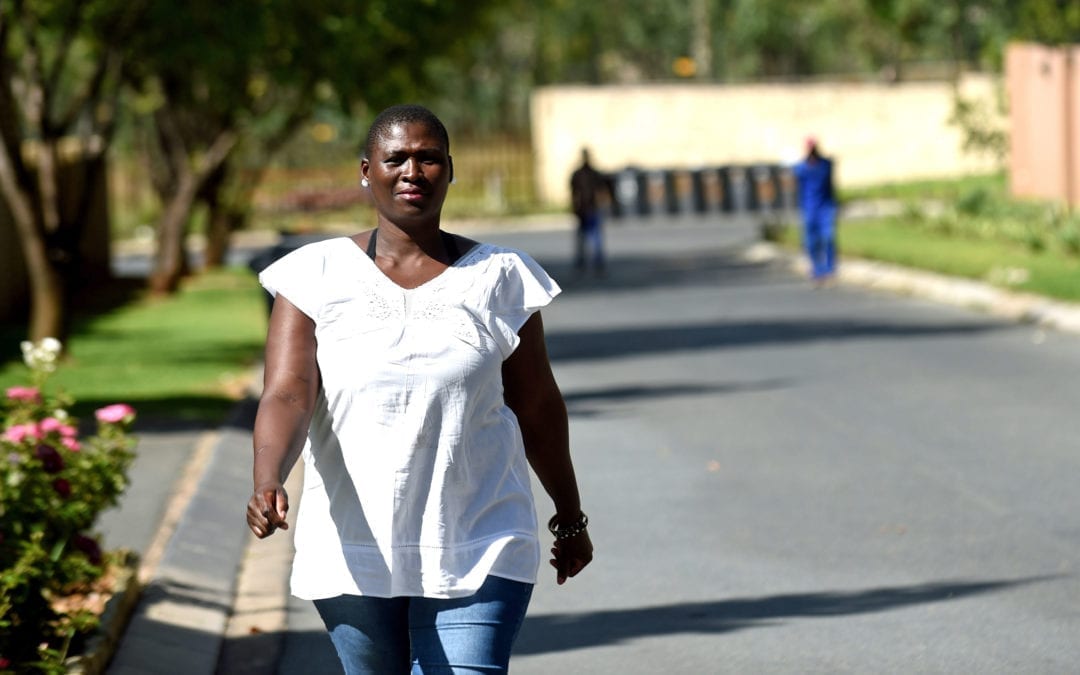
Sep 22, 2017
Prexedes, a domestic worker from Zimbabwe in South Africa, says migrant workers in South Africa often are paid lower wages and suffer harsher working conditions than their South African counterparts.
But after joining a union, Prexedes says she has a better salary, better working hours, weekends off and more.
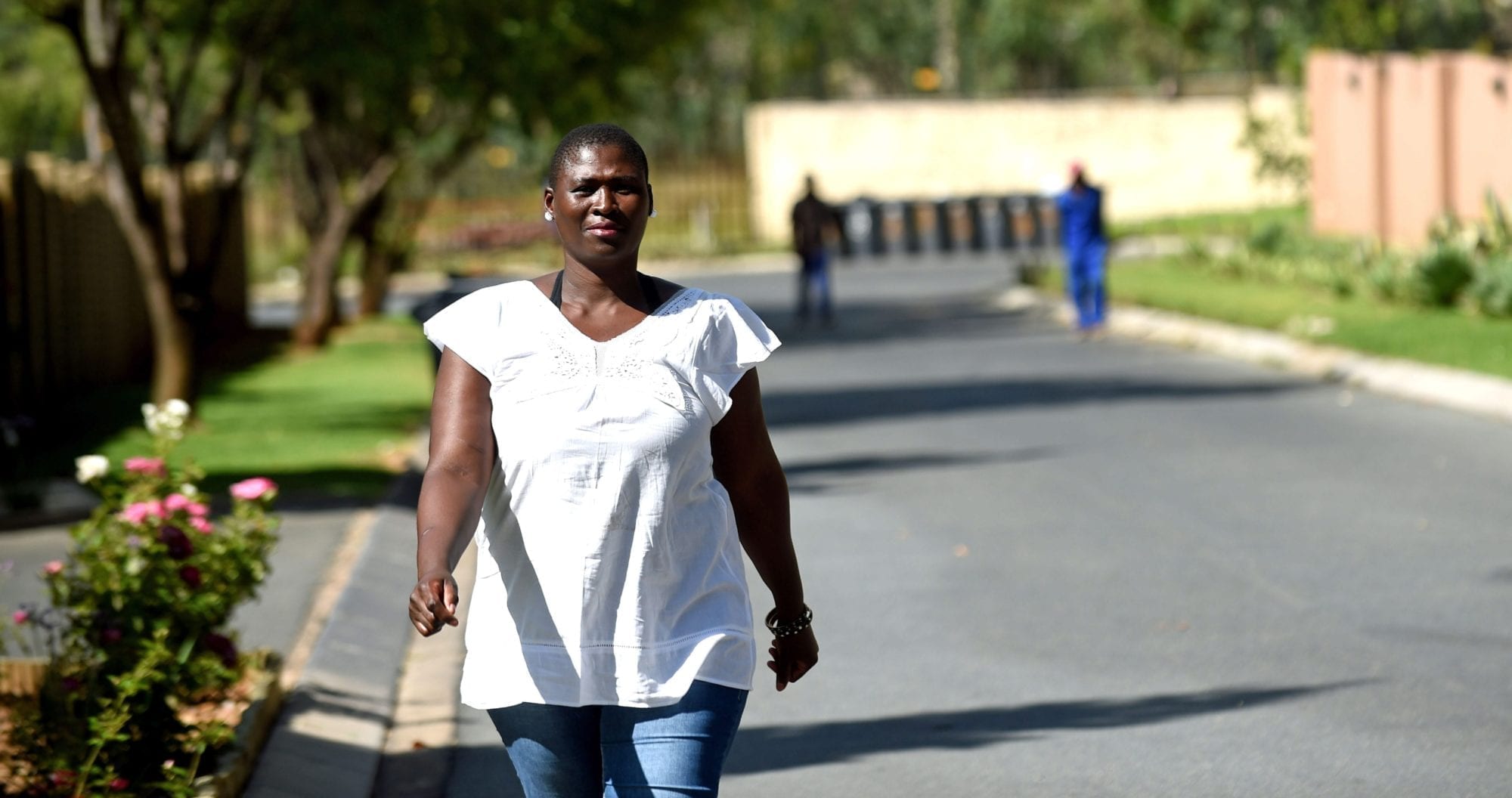
Sep 22, 2017
Prexedes, a domestic worker from Zimbabwe in South Africa, says migrant workers in South Africa often are paid lower wages and suffer harsher working conditions than their South African counterparts. Supporting her three children on her own, Prexedes struggled to pay for transportation to work and food for her family, and often worked overtime for no pay.
But now that she joined the South African Domestic Service and Allied Workers Union (SADSAWU), a Solidarity Center partner, she says “a lot has changed.”
“Since I have joined a union, my life has improved, with the hours I am working and the salary I am getting,” she says.
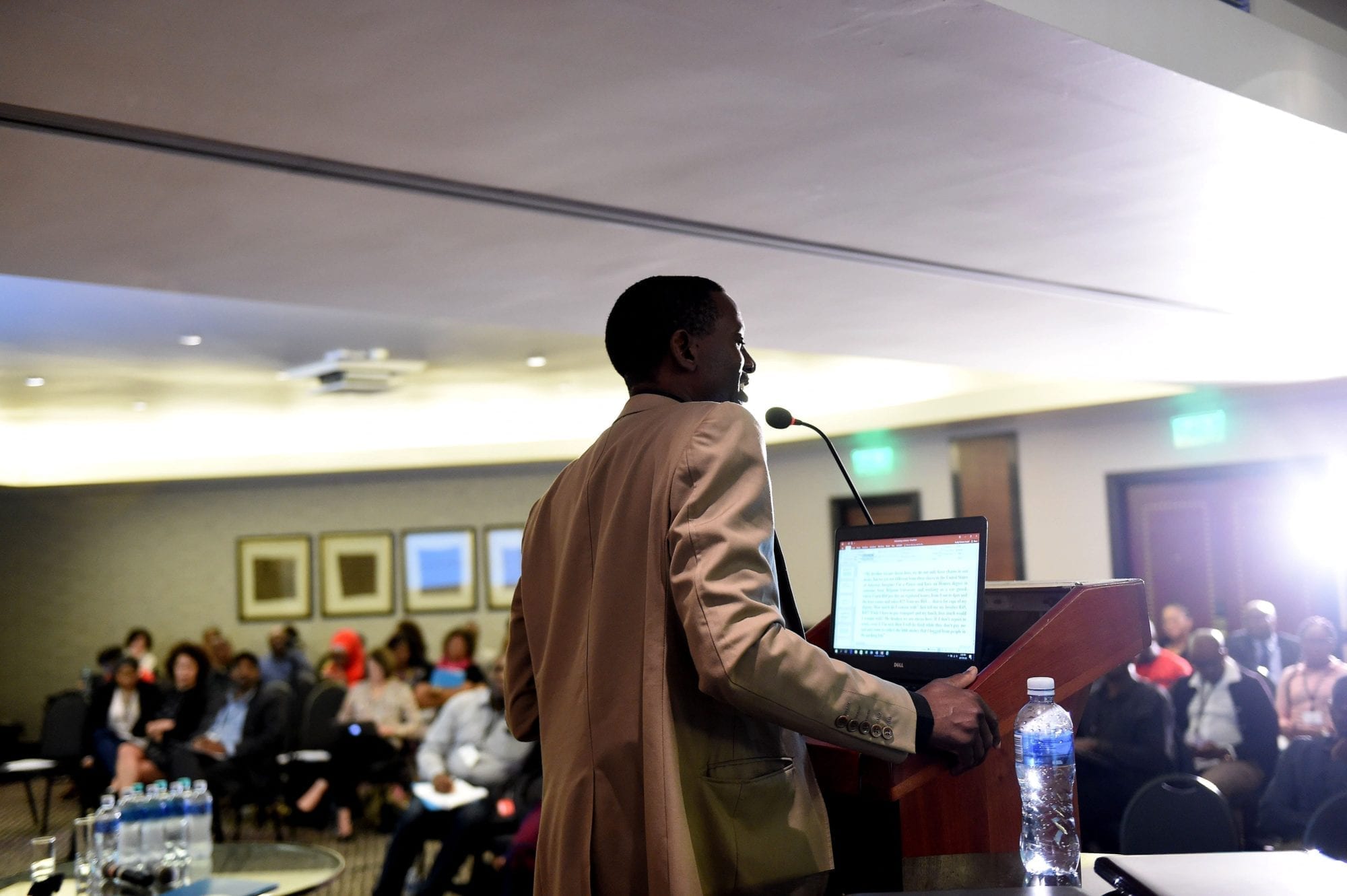
Jan 26, 2017
Xenophobia and racism are embedded in the daily economic and social situation of labor migrants and refugees, according to Joseph Rudigi Rukema, a sociology professor at the University of KwaZulu-Natal.
“The world is witnessing a growing level of intolerance against foreign labor migrants, refugee and asylum seekers,” he says. Rukema kicked off the afternoon session of the first day at the January 25–27 Solidarity Center Fair Labor Migration conference in Johannesburg, South Africa. (See more conference coverage here.)
The more than 120 conference participants joined in discussions on xenophobia and racism and ended the day by strategizing at break-out sessions on union responses to migration flows and migrant worker exploitation.
Although Rukema focused his presentation on conditions in South Africa, the experiences of migrant workers he described occurs across Africa—and the world.

Unions can play an important role by advocating creation of conducive economic and political condition in migrants’ home countries, says Joseph Rukema.
The exploitation of migrant workers begins with their journey, as labor brokers and others take advantage of their precarious situation, says Rukema. After migrant workers arrive in their destination countries, they “define racism in terms of their working conditions”—such as employer exploitation, he says. Migrant workers also are subject to daily harassment by police and other officials, often inhumane treatment by officials when seeking work permits and lack of access to banking institutions.
“If you look at most of migrants, they flee economic conditions in their home countries,” says Rukema, and unions can play an important role by advocating creation of conducive economic and political condition in migrants’ home countries.
“Build a network with existing institutions and really strong grassroots networks,” he says. (Download Rukema’s full presentation here.)
In the two final break-out sessions, participants discussed the challenges to reaching and empowering migrant workers. They identified such obstacles as the difficulty in reaching informal economy workers, many of whom are migrant workers; xenophobia and suspicion by local residents; and the difficulty in documenting those migrating for work.
Further, union leaders pointed to the need to step up efforts to ensure their governments ratify international conventions, especially the International Labor Organization Convention 143 on migrant workers, and develop comprehensive strategies to ensure migrant workers are represented.
Over the next two days, conference participants will develop concrete proposals to meet the challenges of empowering migrant workers. You can follow the conference on Twitter with the hashtag FairMigration and check out Solidarity Center on Facebook for regular updates.




